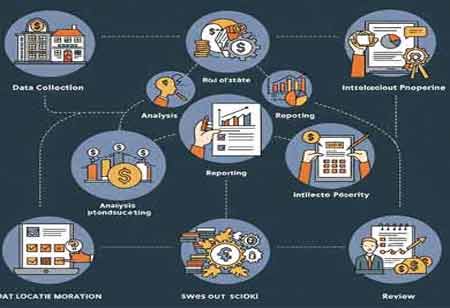CLOSE
Specials
- RegTech Europe
- Financial Risk Management APAC
- Investment Banking APAC
- Corporate Advisory APAC
- Regtech APAC
- Escrow Services
- Digital Banking Latam
- Trading Solutions APAC
- Treasury Management Europe
- CPA Firms Canada
- Financial Risk Management Europe
- Mortgage Broker
- Financial Licensing Europe
- RIA Advisory Europe
- FinTech Canada
- Financial Asset Management APAC
- Investment Banking Canada
- Payment Solution
- Lending Mangment Latam
- Payment Solution Europe
- Broker Dealer Firms Canada
- Alternative Investments Canada
- Financial Fraud
- Investment Management Latam
- Financial Health Europe
- Lending mangment
- Financial Marketing
- Proprietary Trading Europe
- Wealth Management
- FinTech
- Financial Brokerage Firm APAC
- Investment Advisory Europe
- Investment Advisory APAC
- Wealth Management MENA
- Claim Adjusting
- Claim Adjusting APAC
- Mergers and Acquisitions Consulting APAC
- Equipment Financing
- CPA Firms
- Mergers and Acquisitions Consulting Canada
- Investment Services
- Valuation Services Canada
- Wealth Management APAC
- Broker Dealer Firms
- Debt Collection Agencies
- Mergers and Acquisitions Consulting
- FinTech Europe
- Fintech Latam
- Financial Planning / Retirement
- Investment Management
- Financial Compliance
- Digital Banking Europe
- CFO Services
- Debt Collection Agencies Europe
- Wealth Management Europe
- Mergers and Acquisitions Consulting Europe
- Financial Restructuring Europe
- Financial Portfolio Management Canada
- Business Loan
- Payment and Card Latam
- Wealth Management Latam
- Mergers and Acquisitions Consulting Latam
- Tax Advisory Canada
- Trading Solutions Europe
- Alternative Investments
- Digital Insurance Europe
- Investment Services Latam
Weekly Brief
×Be first to read the latest tech news, Industry Leader's Insights, and CIO interviews of medium and large enterprises exclusively from Financial Services Review
Thank you for Subscribing to Financial Services Review Weekly Brief
Debt Recovery Done Right: Ensuring Positive Client Relationships"
By employing a structured, empathetic, and culturally aware approach, organizations can effectively navigate Europe’s complex debt collection landscape

By
Financial Services Review | Friday, February 07, 2025
Stay ahead of the industry with exclusive feature stories on the top companies, expert insights and the latest news delivered straight to your inbox. Subscribe today.
By adopting a structured, empathetic, and culturally sensitive approach, organizations can successfully navigate Europe's complex debt collection landscape, ensuring compliance with regulations while protecting valuable client relationships.
FREMONT CA: Europe's diverse economic landscape, shaped by varying regulations and cultural norms, greatly impacts debt collection practices. The European Late Payment Directive (ELPD) offers a unified framework across the EU, setting maximum payment terms and interest rates for B2B transactions. However, individual member states retain specific legal provisions, including procedures for issuing payment reminders, initiating legal actions, and enforcing judgments. Furthermore, the cultural differences in business practices and communication styles across countries require a tailored approach to debt collection to achieve successful outcomes.
Strategies for Effective Debt Collection
A comprehensive strategy for debt collection begins with proactive credit management. Conducting thorough credit checks on potential clients helps assess their financial stability before extending credit. Clearly defined payment terms in contracts and invoices eliminate ambiguities, while prompt and accurate invoicing ensures efficient payment processing. Leveraging automated systems to send timely reminders via email or SMS can further enhance the likelihood of timely payments.
When payments are overdue, early intervention and communication are critical. Start with friendly reminders to emphasise the importance of timely payments and follow up with direct personal contact to discuss any issues causing delays. Active listening can help uncover the root of the problem, allowing businesses to propose solutions or flexible payment plans that address the client’s concerns.
If initial efforts fail, escalation and legal action may be necessary. Formal demand letters serve as a structured reminder of the outstanding debt and outline the potential legal consequences of non-payment. Partnering with experienced debt collection agencies familiar with European regulations and cultural contexts can improve recovery rates. As a last resort, initiating legal proceedings might be considered, but businesses must carefully weigh this option against the potential damage to client relationships.
Alternative dispute resolution (ADR) methods such as mediation or arbitration can provide effective alternatives to dispute litigation. Mediation focuses on achieving mutually acceptable solutions, while arbitration offers a faster and more cost-effective resolution when mediation fails.
Maintaining Positive Client Relationships
Throughout the debt collection process, maintaining positive relationships with clients is essential. Open and transparent communication fosters trust, while empathy and understanding can help address the client’s unique circumstances. Offering flexible payment options when feasible demonstrates goodwill and a commitment to collaboration. Most importantly, businesses should prioritise preserving the relationship to ensure opportunities for future business.
Effective debt collection in Europe demands a careful balance of assertiveness and diplomacy. By adopting proactive credit management strategies, maintaining timely and transparent communication, and employing strategic escalation when necessary, businesses can recover overdue payments while preserving valuable client relationships. A deep understanding of European regulatory frameworks and cultural nuances is critical to ensuring success in these efforts.

Copyright © 2025 Financial Services Review. All rights reserved





